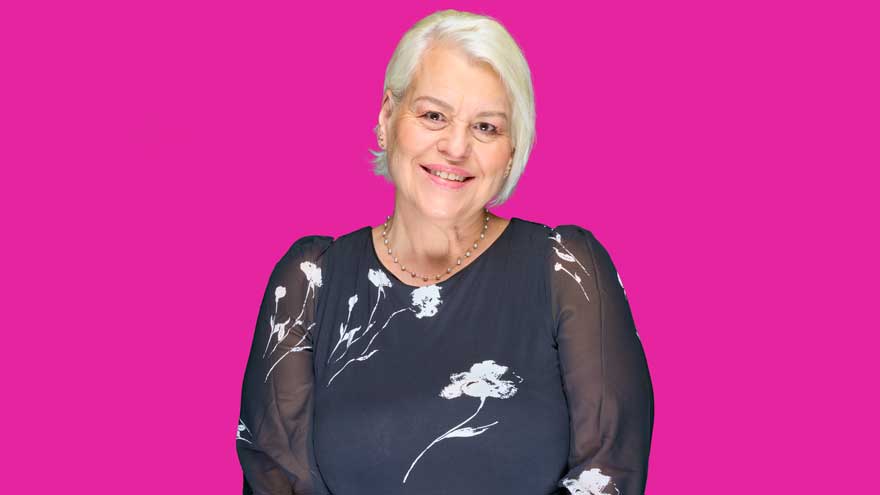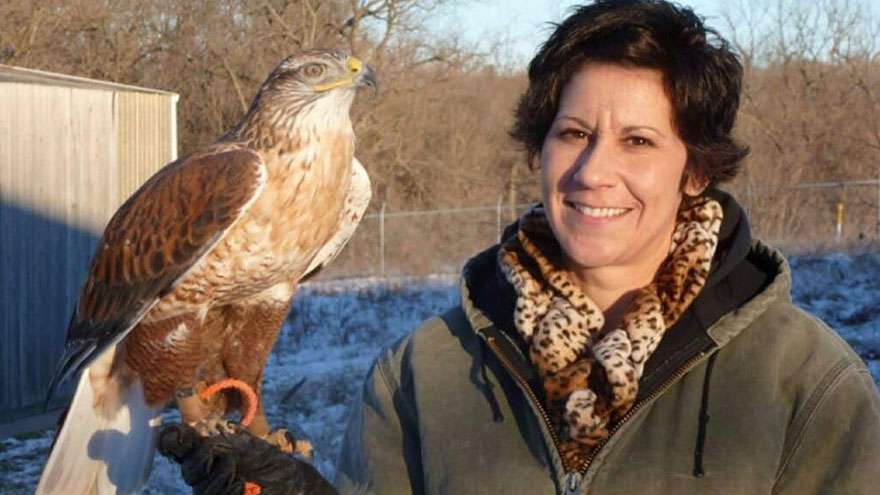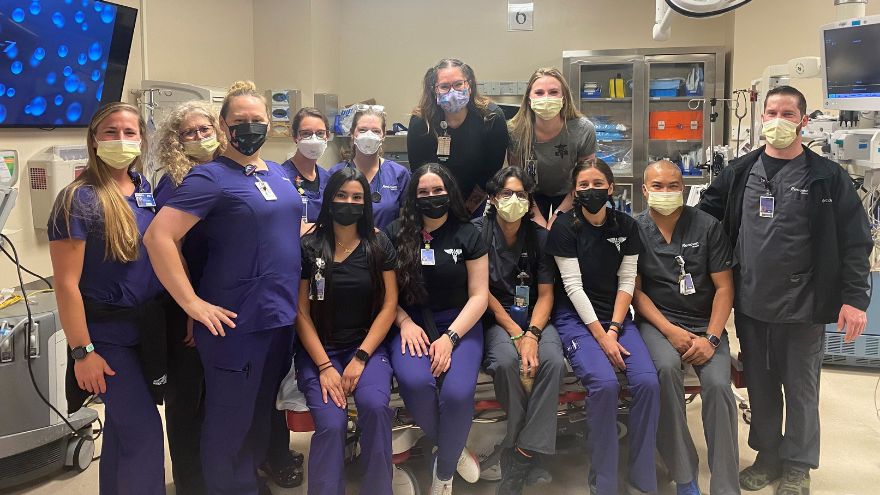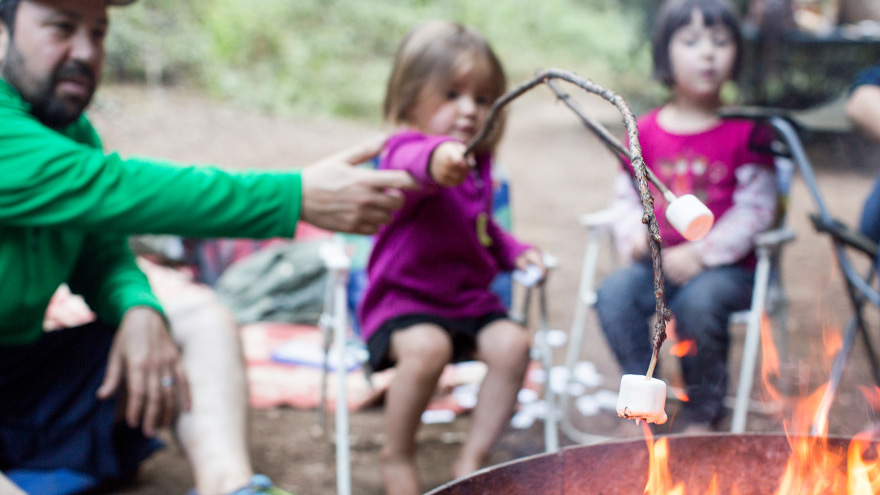Search
-
7 Important Vasectomy Questions for Your Doctor
If you and your partner are looking for a more permanent birth control method, you might consider a vasectomy. Although vasectomies are common, knowledge about them isn’t quite as common or talked about. If you are considering a vasectomy, talking with your primary care doctor is a great way to learn more and start the process. We consulted with Dr. Aurosis Reddy a primary care doctor with Renown Health – South Carson, about key topics to discuss with your doctor when considering a vasectomy. What is a vasectomy? A vasectomy – also called male sterilization – is a form of male birth control that blocks sperm from reaching semen, according to the American Urological Association (AUA). How effective and safe are vasectomies? Vasectomies are one of the most effective methods of birth control with a long-term success rate of over 99%. A vasectomy has been a safe and successful birth control method for many years. More than 500,000 men elect to have vasectomies every year in the U.S., and the number is rising. A vasectomy is also generally a low-risk procedure with a low complication rate ranging between 1-2%. What does the recovery period look like? A vasectomy is typically a quick procedure that takes under thirty minutes and can be performed in an outpatient setting under local anesthesia. Recovery from a vasectomy is also considered relatively easy. After a vasectomy, most can: Resume everyday activities within two to three days Resume normal exercise in one week Start engaging in sexual activity again in one week Your doctor can provide more details on what your individualized recovery process will look like.
Read More About 7 Important Vasectomy Questions for Your Doctor
-
Sterling Silver Club Member Masterpiece
A Gallery-Worthy Member Artistry usually refers to a person’s ability to express their unique creativity in powerful and surprising ways. But there is also an art to living your life in ways that celebrate who you are, your limitless potential, the people you love and the community you care about. So imagine our delight to discover a Sterling Silver Club member and artist whose artistry of life reaches far beyond gallery walls. An Early Love of Art Born in Chicago, Illinois, Debbie arrived as the last of her parents’ three children and has two older siblings, Cynthia and Henry (a.k.a. Skip). As is usually the case, school played an important role in their shared childhood and Debbie remembers being drawn to art assignments in class from an early age. “When I was a young girl, I loved working on various art projects at school,” she recalls. “I always found myself learning something new and then teaching it to everyone I knew.” Later, Debbie would play violin in the school orchestra, join the swim team, and to continue to learn about art and its broader influence. “I remember taking a class and learning about color theory,” recounts Debbie. “I was so impressed with how colors relate to one another and also discovered how primary and secondary colors can be used together to make everything from products and advertising to what we wear more pleasing to the eye.” Expression-ism. “Art allows you to express yourself,” says Debbie. “And I’ve always been quite happy being expressive.” Though Debbie’s affinity for art was obvious, it wasn’t destined to be her career… at least initially. After earning degrees in marketing and public relations at North Central College in Naperville, Illinois and George Williams College of Aurora University in Williams Bay, Wisconsin, respectively, Debbie began what turned out to be a career in technology. In the Chicago area, she held positions as a systems analyst and computer programmer and a role in marketing and public relations for a computer software company. Then it was off to Los Angeles, California with her new husband, David, where she worked in sales and education for another software company. The couple returned to Elmhurst, Illinois to start their family but eventually moved to and settled in Minden, Nevada where David had an insurance business for 23 years and their children grew to become the adults their grandparents dreamed of. “My mom and dad would be most proud of our children,” beams Debbie. “They (her parents) always hoped for the best for them and would be over the moon that they are doing what they want to do, two of them in the field of medicine.” Debbie and David now live in Carson City, Nevada and their three children have established lives of their own. Jeffrey, the oldest, is a pastor and holds two master’s degrees. Rachael is an OB/GYN provider in Southern California and a graduate of University of Nevada, Reno School of Medicine (UNR Med). And their youngest, John-Henry, is finishing up his medical training and will soon be a trauma surgeon. Furry Family Members Debbie’s other “kids” are of the four-legged variety. “Mercedes and Bentley are really our luxury pugs,” she admits. “But are named after famous characters from books, not luxury cars.” She also says they are goofy, much-loved and simply melt the hearts of everyone they meet – “always!”
-
Fighting Depression with rTMS Therapy
If you ask most people who suffer from depression what it's like, it can be difficult to fathom. We spoke with the courageous and fearless Kathryn, who has endured major depressive disorder (MDD) most of her life. She recollects what it was like, and how grateful she is for a new rTMS therapy treatment she recently completed. Kathryn is a local resident who shares her story to provide hope and support to others surviving depression. From her accounts of the grueling years she faced this disorder to how hard she fought to find treatment, Kathryn is a true hero. According to the National Institute of Mental Health, major depression is one of the most common mental disorders in the U.S. The disease causes people to experience sadness and helplessness, and in some cases, may prevent people from carrying out their daily routines. No two people are affected the same way, meaning there's no "one-size-fits-all" for treatment. Finding help is typically a long and exhaustive journey for most surviving depression. The Long and Confusing Road to Finding Help Kathryn is no different from most major depressive disorder (MDD) survivors, fighting for a better future. Her mental health treatment journey started as early as 12 years old; however, she wasn't diagnosed with depression until much later in life. In her late 20s, a friend told Kathryn she was depressed, but like so many individuals battling the illness, Kathryn didn't know what depression was. The waiting lists to get into mental health treatment was devastating. She found mental health resources scarce, an issue far too familiar throughout the U.S. After being prescribed more than twenty different depression disorder medications, she wasn't sure who she was or if she'd survive. Determination to Fight Kathryn's darkest moments lead to experiences that are unspeakable to relive. But in her persistence to not give up, she began researching a more promising treatment. “I was looking for an evidence-based therapy,” says Kathryn. “In my research, I found Transcranial Magnetic Stimulation Therapy to be most promising.” After a yearlong waiting list for repetitive transcranial magnetic stimulation (rTMS) therapy in another state, Kathryn moved to Reno, Nevada, still searching for a location that offered this therapy. Thankfully, Kathryn's arduous journey led her to the Stacie Mathewson Behavioral Health & Addiction Institute at Renown. That is where she received news from her doctor, Gunjan Lehil, MD, that rTMS is offered for people looking for a new way to fight depression. How rTMS Therapy Works rTMS is a non-invasive procedure that uses magnetic fields to stimulate nerve cells in the brain to improve symptoms of depression – typically used when other depression treatments haven't been effective. This treatment involves delivering repetitive magnetic pulses, referred to as repetitive TMS or rTMS. During an rTMS session, an electromagnetic coil is placed against the person's scalp near their forehead. The electromagnet painlessly delivers a magnetic pulse that stimulates nerve cells in the region of the person's brain involved in mood control and depression. It's thought to activate areas of the brain that have decreased activity in depression. Though the biology of why rTMS works isn't completely understood, the stimulation appears to impact how the brain works, which seems to ease depression symptoms and improve mood. On average, patients undergo rTMS treatments for four to six weeks, five days a week for about 40 minutes a day. A patient's doctor will determine a treatment plan that's best for the patient in all cases. Life After rTMS Therapy After completing six weeks of rTMS therapy, Kathryn feels as though she is coming back to life. She has noticed her posture is different, and she is more animated. She is also more interactive at work, and her coworkers are more perceptive and positive towards her. Life at home is also improving, as Kathryn's family is noticing a difference. She notes that while she still faces feeling depressed, it's so much different from it used to be. The difference is, she can better decipher a bad day and work through the challenging moments. She has hope - which she never felt before. rTMS Therapy has given Kathryn a chance at life, and she's excited to start living! The Future is Fearless Kathryn says the way to success is never to give up and to keep pushing herself forward every day. Currently a veterinarian technician in training, Kathryn is working on getting her license. She loves working with all animals, but her true passion is falconry and helping injured birds of prey. She loves falcons because they are utterly fearless, just like her. "It's time for me to be brave and show up. I couldn't do that before," says Kathryn. "I'm grateful to have rTMS treatment, and I share my story in hopes of helping others."
-
Concussion Risks and Prevention
It’s important to be aware of the risk of a concussion, which can have serious health implications. Susan Park, MD, discusses the effects of concussions and how they can be prevented. According to Susan Park, MD, a Renown Medical Group doctor who specializes in sports and family medicine, concussions are a serious issue — especially among children whose developing brains “are more susceptible to brain injury and long-term effects from concussions.” All parents, coaches and athletes, she points out, should be aware of the risks of concussions and take precautions to avoid them. What is a concussion and how does it occur? Dr. Park describes a concussion as a traumatic brain injury resulting from direct or indirect impact to the head or body, during which the brain shakes back and forth in the skull. This may cause some bruising of the brain. In severe cases, traumatic head injuries can cause bleeding, which if not treated quickly, can be fatal. What are the health implications of a concussion? Symptoms of drowsiness and confusion can be a sign of a concussion after a head injury. Some short-term effects may include headaches, dizziness and difficulty concentrating. Long-term concerns can further include mood disorders, sleep disturbance and problems with cognitive function-concentration, which may affect school performance. What sports carry the highest risk of suffering a concussion? Dr. Park notes participation in any impact sport can result in a head injury. But among school-age kids, she treats more concussions from football and soccer than any other sport. However, during the winter months, skiing and snowboarding injuries can be a common cause of concussions Any blow to your head, neck or upper body can result in a concussion with symptoms including, but not limited to, feeling dazed or confused, dizziness, nausea/vomiting or a headache. Initial treatment of concussions varies depending on severity. Rest, avoiding vigorous activity and a reduced school workload help young athletes recover after a concussion. Dr. Park notes that sometimes further imaging and an ER visit will be required. Otherwise, rest from activities is the main treatment, along with not returning to sports activities until further clearance from a healthcare provider.
-
Department Spotlight: Emergency
The emergency department is a central part of Renown Health’s hospitals. Serving patients in need of emergent attention, this team has an incredible level of dedication to not only tending to emergencies big and small, but also saving lives 24 hours a day and seven days a week. This critical work happens daily at Renown Regional, Renown South Meadows and Renown Children’s Hospital. Patients in Renown’s emergency rooms (ER) are in the best hands, and it is all thanks to the devoted, hard-working teams who run the show. Saving Lives Around the Clock As the only Level 2 trauma center between Sacramento and Salt Lake City, taking care of a constant stream of patients in the Renown Regional, Renown South Meadows and Renown Children’s ERs come naturally for these teams. Whether it be 3 a.m. or the lunch hour, this team is always ready to spring into action to attend to virtually any health emergency under the sun. According to Gabby, an RN in the Renown Regional ER, everyone in the ER must be ready for anything. “We are the first line of care that the patient receives before they are admitted or discharged,” which means the team sees a wide variety of emergency situations each day. Patients rely on the ER to protect them and help them heal from severe conditions. From head injuries and broken bones to heart attacks and strokes, this team has seen it all at every time of the day and night. “The ER is an uncontrolled, unpredictable environment,” said Miriam, an RN in the Renown Regional ER. “It’s essential that we all are ready to jump in and help at any time.” Beyond the general ER at Renown Regional, Renown Children’s Hospital is the only accredited Children’s Hospital Emergency Room in all northern Nevada. The first and only facility of its kind in the Reno-Tahoe region, this robust emergency department is equipped with pediatric specialists and child-sized equipment to give children the highest level of support. “We are proud to keep a fun atmosphere with vibrant colors to help our young patients ease their anxieties, making them as comfortable as possible while providing excellent care,” said Ginger, Manager of Nursing for Renown Children’s ER. While the majority of patients are treated onsite and discharged that same day, several ER patients get admitted to the hospital, when that happens, the emergency department works quickly with the Renown Transfer and Operations Center (RTOC) to get patients in a bed as soon as possible. All day and all night, ambulances and helicopters deliver members of our community in need of care. But never fear – our incredibly capable emergency department is here. Kicking off into immediate action is a core requirement for the emergency department, and it is a task the entire team has nailed down to a science. Team Tenacious When asked about their team, members of the emergency department echoed the same notion: “I am not alone.” The emergency department never leaves their colleagues out to dry, and in an emergency environment, always being able to lend a hand whenever needed is vital. For Ashley, an RN at Renown Regional, one of the main reasons why she continues to work at Renown is because of her colleagues, along with a myriad of resources and state-of-the-art technology that are at their disposal. She adds, “It is such a joy to come in to work alongside my team.” Amy, Supervisor of Nursing for the Renown South Meadows ER, feels the exact same way. “Being an emergency department, we sometimes see things you don’t always see every day,” said Amy. “It’s a relief for our patients to know that they are in the best place in the region for their care. I credit all of that to my team.” As our emergency room capabilities continue to grow, this also includes our Children’s Hospital ER. Last year, the William N. Pennington Foundation provided a $7.5 million gift to the Renown Health Foundation to keep pediatric care – including pediatric emergency care – closer to home and expand our availability to our youngest patients. As reported last year, Dr. Joseph Gassen, a pediatric emergency doctor with Children’s Hospital, was the only pediatric emergency physician in the region as of 2021. Thanks to this gift, he was able to move to Reno to provide care in the Children’s Hospital ER. “The hospital is dedicated to improving the care of children in northern Nevada, and I wanted to be a part of this amazing vision," said Dr. Gassen. “I would not have been able to relocate to Reno without the support from the hospital and the William N. Pennington gift.” Besides achieving optimal outcomes for their patients, their efforts also paid off in the form of awards and recognition. Internally, the emergency department recognizes Employees of the Month for their outstanding work. Recently, Renown Regional Emergency Physician Dr. Patrick Russell and Claire, an RN, were recognized with this honor. Outside organizations have also noticed these exceptional team members. The Reno Gazette Journal’s recognized the Renown Regional ER as the Best Emergency Room in the 2022 Best of Reno Awards, complimenting Renown Regional’s wins as the Best Hospital and Best Place to Have a Baby. The tenacity of the emergency department continues to surpass expectations, and their published achievements only scratch the surface of what is sure to come. A Growing Team of Heroes To continue meeting the growing need for emergency care regionally, especially when it comes to trauma and children’s services, the emergency department is looking forward to welcoming new team members. For those looking for a fast-paced, team-oriented atmosphere and the opportunity to be on the healthcare frontlines, the emergency department is a perfect fit. As teamwork is clearly essential, the emergency department is an ideal environment for someone who is “not afraid to ask questions and always eager to learn new things,” according to Miriam. While one staff member’s patients may be settled, staff one assignment over could be overwhelmed with patient volume, so it is an imperative skill for a colleague to be a self-starter and take the initiative to help wherever needed. Bryan, an emergency trauma technician at Renown Regional, emphasizes this point, adding, “A good colleague is one that knows you well and can infer your body language. They know how to read a situation and pre-plan for the next step. Being attentive, a valuable resource and knowledgeable about patient populations – that's the works!” Career growth and lifelong learning are important to this group, so career-minded individuals will be in good company in the emergency department. “I choose Renown so I can jumpstart my career as a nurse in the top ER in the region,” said Gabby. This team is always learning and always on top of the latest research – which only further solidifies Renown’s place as the preeminent ER in northern Nevada and northeastern California. If you take one thing from this article, let it be these parting words from Amy: “These are some of the smartest, most devoted individuals you will ever meet, and we are so lucky to have them serving our emergency department. You will only regret not working with this team.”
-
Gourmet Campfire S’mores
In honor of National S'mores Day, August 10, let's celebrate by making these toasty campfire s'mores with some scrumptious gourmet options! Please make sure an adult tends to the fire at all times.
-
A Guide to Summer Weekend Fun During the School Year
Although students are heading back to school, that doesn’t mean the summer fun has to be over. Weekends and after-school hours still call for engaging activities for the kids, even if the extreme heat and thunderstorms don’t beckon you and your kids outside. There are several creative ways you can keep your children active indoors during those coveted out-of-school hours. Below are 10 activities sure to spark fun for the kids from the comfort of your own home. 1. Dance It Out Children are bundles of energy. Turn on your child's favorite music station, roll up the carpet and dance it out. 2. Paint Pictures Above all, kids love to use their imagination. Why not gather up some paintbrushes and some colorful paints to let your child create a masterpiece? 3. Scavenger Hunt Whenever children go on a scavenger hunt, it's a mini adventure. Collect some of your child's favorite items, and hide them around the house, giving them clues to help them find them. 4. Balloon Toss Many kids love balloons. Tossing balloons into the air and having your child keep them up in the air without having them touch the floor is an active energy burner. 5. Science Experiments In case you have a budding scientist at home, choose a science experiment to spark their imaginative spirit. Making water bottle lava lamps or frozen slime are terrific indoor STEM (science, technology, engineering and math) activities. 6. Arts and Crafts From scrapbooks with their favorite photos to crafts from household items, arts and crafts are a great way for your kids to work their innovation muscles. 7. Indoor Bowling Bowling in your own home – unexpected? Sure. Loads of fun? Absolutely! You can purchase an indoor bowling set for less than twenty dollars or create your own with household items. 8. Board Games Because of the limitless options, board games are another favorite indoor activity for the whole family. Your child can learn vital social skills like learning to wait their turn, as well as memory formation and problem-solving skills. 9. Stage a Puppet Show Making sock puppets (or even just using “hand puppets”) can really spark a day of spectacular imagination. Draft a script and perform a puppet play for the whole family! 10. Karaoke Concert Singing certainly gets you in the groove of having a great time with your family and building memories – and you don’t even need a karaoke machine to do it! There are many digital karaoke options available for your family’s delight. It’s no surprise that after-school hours and weekend days are premium play time for kids, especially during the summer months. As shown above, indoor summer activities when the weather isn’t conducive to spending time outdoors can still be fun and engaging for everyone.
Read More About A Guide to Summer Weekend Fun During the School Year
-
Meet Multifaceted Member Don Chang
Renaissance Don The Sterling Silver Club is honored to have thousands of members who’ve led and continue to lead incredibly vibrant and diverse lives. And we’re absolutely thrilled when those members volunteer to share their stories and experiences so we can all appreciate and learn from them. This issue’s featured member is no exception. From his love of cooking, travel and music to his drive to learn new languages, take on new hobbies and keep himself active and fit, Don is an aspiring Renaissance man who may already be deserving of the title. Revolutionary Family Roots Don’s father, who was born in Beijing, China, earned a master’s degree in metallurgical engineering from the University of California, Berkeley and was working on his PhD there on a full scholarship from his home country when the Chinese Communist Revolution occurred. In order to stay in the United States and avoid potentially being thrown into prison by the new communist regime (a fate that befell some of his family members), his father married Don’s mother, who was a U.S. citizen and also a student at Berkeley. Together, they started a family. “My father met my mother in a class and received his green card by marrying her,” says Don. “They proceeded to have six kids in nine years, I was number three. Dad never finished his PhD, but clearly earned what we like to call his “PSK” degree – Papa with Six Kids.” Proud (of) Papa: Don’s father was a professor of metallurgy and a brilliant research scientist who was responsible for virtually every breakthrough in the development of titanium in the 1960s.
-
Type 2 Diabetes: What You Should Know
Type 2 diabetes, formerly known as adult-onset diabetes, is on the rise for adults and children in the United States. Although genetics play a role, you can take steps today to lower your risk of developing this life-altering condition. Michael Raymund Gonzales, MD with Renown Endocrinology answered our questions about Type 2 diabetes and gave us some useful tips for prevention. What effect does diabetes have on the body? And who’s most at risk? First, it’s important to know the difference between the two most common types of diabetes: Type 1 diabetes is the result of the body’s inability to make insulin, which is a hormone your body needs to be able to use sugar, or glucose, for energy. Type 1 is not preventable, and people who have it were either born with it or they developed it later in life due to an autoimmune process that attacked the pancreas that went unrecognized. Type 2 diabetes occurs when the body makes the insulin hormone, but it might not make enough or work well enough for the body to use sugar for energy. This is called insulin resistance. This condition usually develops later in life but is preventable with proper diet, exercise and weight loss. However, due to the obesity epidemic, type 2 diabetes is occurring more often in younger individuals. Diabetes hurts the body’s ability to break down glucose, so rather than it being used for energy, glucose stays in the bloodstream, which can cause problems. But with early detection and the help of your doctor, diabetes can be managed so that complications are avoided. Left unmanaged, however, diabetes can affect major organs and lead to heart and blood vessel disease, nerve damage, kidney damage, eye damage, skin conditions and more. Type 2 diabetes also results from risk factors that you can’t control, including your family history, race and age. However, there are a few risk factors that you can watch out for, such as being overweight, inactivity, diet choices, having high blood pressure and high cholesterol and triglycerides.
-
Monkeypox: A Renown Expert Weighs In
Renown Health is closely following the national outbreak of the monkeypox virus and urging healthcare providers to be alert for patients with illnesses associated with a rash. In working with the Washoe County Health District (WCHD), Renown is closely monitoring the spread of monkeypox in the community and looking to prevent and reduce the spread of monkeypox. To help to ease worries, we consulted with Paul De Leon, Infection Preventionist at Renown Health. What Exactly is Monkeypox? Monkeypox is a rare viral illness caused by the monkeypox virus — the same family of viruses that causes Smallpox. Although symptoms are similar to Smallpox, monkeypox symptoms are milder and rarely fatal. However, it's important to mention that this virus can be more severe for these susceptible groups: Immunocompromised Pregnant women A fetus or newborn baby Women who are breastfeeding Young children Those with severe skin diseases such as eczema How is Monkeypox Transmitted? The monkeypox virus is not easily transmitted but occurs through sustained person to person close contact with an infected individual. Monkeypox can also be transmitted through direct contact with infectious rash, scabs, or body fluids. Monkeypox can also be spread through prolonged intimate physical contact, such as kissing, cuddling or sex. Lastly, monkeypox can be spread through contaminated linens or bedding. Transmission through respiratory secretions is uncommon but has been reported after prolonged face-to-face contact with symptomatic individuals. In addition, pregnant women can spread the virus to their fetuses through the placenta. Monkeypox Testing If you think you have monkeypox, contact your primary care physician or other medical providers to obtain testing. Notify the provider ahead of time before entering the physical office. Signs & Symptoms This current outbreak of West African monkeypox does not have the typical presentation of classic monkeypox. Symptoms usually appear one to three weeks after infection and include: Pimple-like rash or blisters on the face, inside the mouth, and on other areas of the body, like the hands, feet, chest, genitals, or anus. The rash will go through serval stages, including scabs, before healing and may be painful or itchy. Other symptoms of monkeypox can include: Fever Headache Muscle aches and backache Swollen lymph nodes Chills Exhaustion Respiratory symptoms such as sore throat, nasal congestion, or cough Symptoms of monkeypox may occur before or after a rash with some individuals only report experience a rash. Individuals with monkeypox are infectious once symptoms begin and remain infectious until lesions form scabs, scabs fall off, and a fresh layer of skin forms. The illness typically lasts 2-4 weeks.
-
Healthy Summer Salads
Reviewed by: Jessica Blauenstein, a Board-Certified Specialist in Oncology Nutrition and Registered Dietitian at Renown Health. As the temperatures continue to rise around northern Nevada, our farmer’s markets and home gardens are bursting with produce – making this the perfect time to prepare a fresh summer salad for you and your family. American salads have come a long way. No longer must we settle for iceberg lettuce topped with pale tomatoes and store-bought salad dressing. Fresh fruits, exotic vegetables and aromatic herbs are proudly taking up residence as entrees on menus around the globe. These refreshing Pritikin salad recipes are chocked full of phytonutrients – plant compounds that provide a host of anti-bacterial and anti-inflammatory benefits while supporting the body’s natural detoxification process. When it comes to ingredients, freshness counts! Try to use local and unsprayed produce in your salads whenever possible for added nutritional value. Already thinking of ways you can put your own personal touch on these recipes? Andria Herron, dietary educator with Renown’s Healthy Heart Program, encourages you to experiment. “Salads are the perfect recipes to substitute, omit and add in additional ingredients based on your personal preferences,” said Andria.
-
Have a (Healthy) Heart: Maintain Your Blood Pressure
Do you know your blood pressure numbers? Dr. Michael Bloch explains how maintaining healthy numbers are important for good quality of life and increasing longevity. High blood pressure, or hypertension, affects 85 million Americans – that’s one in three people. Left untreated, it can lead to serious and sometimes life-threatening health concerns such as vision loss, kidney disease, heart failure, heart attack and stroke. But what is it, exactly, what makes it go up and why is that increase in pressure so dangerous? All About Blood Pressure In order to function properly, your body requires a continual supply of oxygen rich blood, which is goes to organs and tissues via blood vessels called arteries. Your beating heart produces the force (or pressure) your vessels require to move blood. This is your blood pressure. Your blood pressure numbers reflect two forces at work – the pressure created as blood is pumped throughout the body (systolic) and the pressure when your heart is at rest in between beats (diastolic). A normal, healthy reading shows a systolic level at 120 or below over a diastolic level of 80 or less: 120/80. An increase in pressure occurs slowly over time, straining the circulatory system and forcing the heart, blood vessels and tissues to work harder. This friction damages blood vessel walls and lets plaque buildup from LDL cholesterol, setting the stage for hardening of the arteries. As more and more plaque builds up, your blood vessels narrow, further raising blood pressure, damaging the circulatory system and increasing your risk of serious health conditions. The Silent Killer High blood pressure is known as a “silent killer,” as most people with it have no symptoms. In fact, one in six of those affected don’t even know they have the condition. That’s why it’s so important to know your numbers. The only way to find out if you have high blood pressure is to have it measured, either by a health professional or using a home monitor. If your numbers are high, there are things you can do to help lower it – it is treatable, but not curable. You can manage it with medications and lifestyle changes including: Adhering to the Mediterranean diet Decreasing sodium intake Avoiding excessive alcohol consumption Increasing exercise and activity levels Losing weight Prevention and Genetics Even better? High blood pressure doesn’t just happen. You can prevent the condition altogether. How? Know your numbers and know your risk. Look at your family medical history. Genetics certainly increases the risk of it, but those same lifestyle choices that can improve poor blood pressure can also prevent you from developing it. So if your numbers are good, keep them that way – eat well, move your body, maintain a healthy weight and drink alcohol in moderation.
Read More About Have a (Healthy) Heart: Maintain Your Blood Pressure











